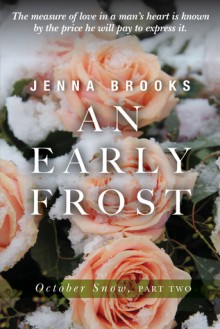
. . . and October is Domestic Violence Awareness Month. Serendipitous? Or was the author cognizant of that fact? I'm pretty sure she knows, because she knows a lot about every aspect of family violence, not only how it affects all involved right now, but also how its effects continue to impact individuals far into the future; and not only those directly involved, but also extended family and friends, and the community and schools, as well as the Child Protective Services and the rest of legal system.
It's a heartbreaking story, but not without a ray of hope in the end.
There is a lot here that makes you want to rage. And a lot that makes you wonder, Can that really be true? The events described in this book portray the legal system as being guilty of perpetuating violent circumstances. Many of their rulings have required women to remain in abusive relationships or risk losing their children to the custody of their abusive husbands. It becomes a Catch-22:
". . . when she worked at the center, she tried with everything in her to help the countless women with their horror stories about losing their children to a father who abused them. It seemed that the only way to protect the children was for these women to stay with their abuser, and Jo thought that to be the equivalent of state- sanctioned domestic violence.
The mothers couldn’t tell anyone, except the advocates like Jo -- duty-bound to keep it confidential; if anything, the mother who remained with an abuser had to make absolutely certain that outsiders knew nothing, because if the state found out she was “allowing” abuse in her home, she’d lose her kids for failure to protect. But if she tried to leave, and raised the issue of abuse, she’d lose her children for alienating them. She decided that in the end, the state had certainly gone the distance to force battered women underground. In her own life, she found it to be a darkly fascinating paradox–that in making sure she couldn’t be accused of alienation, it was she who had been alienated."
“The way these dad’s rights groups–and lawyers–work it, it really doesn’t matter what a guy does to a woman, once she has his kid. They believe that even if the kids are terrified of a violent father, it’s only because the mother brainwashed them to hate their father, not because the father is scary.”
Jo is an Advocate at a women's shelter. Her friend, Samantha is trying to leave an abusive relationship. Before she succeeds, she becomes pregnant, but she is determined that Jack will never find out about the baby. But what if he does anyway?
“'No decent judge will leave an infant alone with him. Not when Dave and Sam have a perfectly stable home." Jo understood that she needed to believe that for the moment, so she didn’t respond.
'Right?' Max persisted. 'Of course not. That would be insane.'
'True enough.'
Max decided it was Jo’s composure that was so irritating to her. 'What are you thinking?' she demanded.
'That you’re wrong.' The simple statement had the effect Jo intended: to get Max to drop the things that kept her safe from the reality of the situation."
And Jack does find out, because he's a creepy, slimy scum-of-the-earth type.
"He’d had no idea that the baby he so desperately didn’t want would be the key to a lifetime of power over Samantha."
this is is such a good book; it touches on so many aspects of the problems of DV; how and why it's difficult for many to leave the situation, how it affects the relationships of mothers and children; the mind-sets of the abuser and the many ways they wield power against their victims, and manipulate all those who know her with insidious lies and sly insinuations about her mental states.
When asked why an abusive husband stayed with the woman even though he hated her, the wife responded this way:
“The real reason? He needed me. I was his mirror. . . All abusers do it. I swear they do. It’s like this: if he can define me as stupid, then he can define himself as intelligent. If I’m weak, he’s strong. If I’m gullible, he’s clever. If you’re evil, he’s good. So you see, if I had gotten away, he would have had no way of defining himself. That’s why these guys go insane when they think their ‘mirror’is getting away. It’s like they’ll lose themselves. It’s a real life-and-death struggle for them. Know what the hell of it is? Realizing, in the end, that I–just me –I never even truly existed in his mind. I was like I said, a thing for his use."
Although I love the book, I think it has a few problems. It seems to paint with a very broad brush: it's hard to believe that everyone in the court system is intent on keeping families together when it is clearly not in the best interest of anyone involved. And all religious people surely do not counsel the woman to be humble and accept the abuses of her husband because that is what a good wife does. And all lawyers who represent fathers surely do not think of, and portray the mothers of the children as sneaking, conniving, blood-sucking, money-grubbing sluts out to trick the man by using his children against him.
But overall, a very good book, with lots of subject matter for thought.


 Log in with Facebook
Log in with Facebook 















